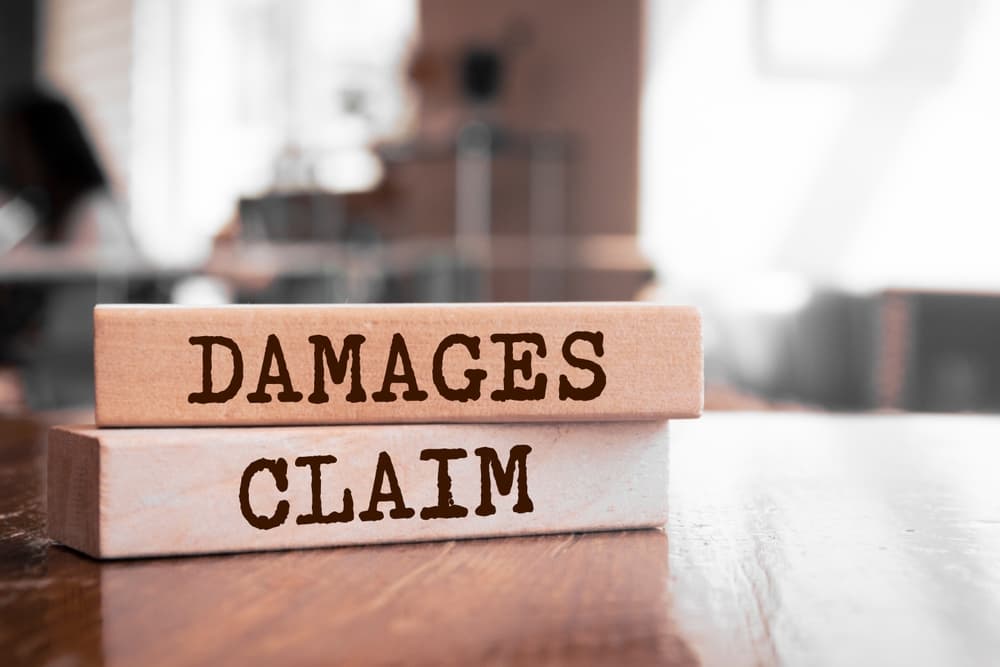Sexual assault and sexual abuse are often confused, yet each term carries its own legal meaning and consequences. Survivors pursuing justice face complex definitions that shape criminal charges, civil claims, and the support available to them. Understanding these distinctions helps you know which legal path to pursue and what outcomes to expect. Having clarity around these terms empowers you to make informed decisions.
At Horowitz Law, our sexual abuse and sexual assault attorneys explain every step in plain language and develop strategies tailored to your needs. We believe you. It’s not your fault.
Defining Sexual Assault

Sexual assault describes certain criminal acts that violate a person’s bodily autonomy. These offenses carry severe legal penalties and may involve arrest, prosecution, and conviction. Survivors often pursue criminal charges to hold perpetrators to account.
Common forms include:
- Rape, as defined by state law, involving nonconsensual penetration.
- Sexual battery, which may include unwanted touching of intimate parts.
- Coercive sex, where consent is obtained through threats or manipulation.
Under Florida law, for example, rape entails “oral, anal, or vaginal penetration without consent” and carries severe penalties. Criminal cases aim to punish the accused, not compensate survivors.
Defining Sexual Abuse
Sexual abuse covers a broader pattern of harmful conduct, often extending over time and involving power imbalances. Civil courts recognize this category to allow survivors to seek financial recovery and institutional accountability. These claims may arise long after the abuse ends and involve detailed investigations.
Forms include:
- Childhood sexual abuse by family members or caretakers.
- Abuse by coaches, teachers, clergy, or medical professionals.
- Institutional sexual abuse occurs when organizations fail to protect survivors.
Civil claims focus on holding individuals and institutions accountable for negligence and harm, providing survivors with a route to healing beyond the criminal justice system.
Key Legal Distinctions
Survivors often wonder why they need both criminal and civil proceedings. Each legal path serves a distinct purpose and follows different rules. Understanding these differences helps you pursue the most substantial claim for your circumstances.
Key distinctions include:
- Purpose: Criminal law punishes offenders, while civil law seeks damages for survivors’ losses.
- Parties: Prosecutors represent the state in criminal cases; survivors sue individuals or entities in civil cases.
- Standard of Proof: Criminal cases require proof beyond a reasonable doubt; civil cases use a lower “preponderance of the evidence” standard.
- Outcome: Criminal convictions may deter future crimes; civil judgments award compensation and may impose punitive damages on negligent institutions.
Criminal verdicts do not provide financial support for survivors’ ongoing recovery needs. Civil lawsuits allow you to address both the harm you endured and the institutional failures that enabled abuse. Pursuing a civil claim may also force organizations to implement reforms that protect future victims.
Why Both Paths Matter
Pursuing justice in both criminal and civil courts strengthens your ability to heal and hold parties accountable. Criminal convictions deliver public recognition of wrongdoing. Civil lawsuits supplement that recognition with financial support for recovery. Both paths may run simultaneously.
Civil lawsuits offer:
- Financial compensation for therapy, medical care, and lost wages.
- Validation of survivors’ experiences.
- Institutional reform when negligence is exposed.
Civil actions also empower survivors to participate directly in legal decisions and maintain control over how their stories are told. Securing a civil judgment might pressure institutions to change policies, preventing future abuse and creating safer environments for others.
Institutional Sexual Abuse and Negligence
Many survivors endured harm while in the care of trusted organizations that failed to respond to warning signs. These institutions often maintain extensive internal records, policies, and correspondence that reveal critical details upon examination. Civil litigation allows survivors to hold both individual perpetrators and the organizations that enabled abuse accountable.
Typical defendants include:
- Religious organizations, such as dioceses or congregations.
- Schools, colleges, and daycare centers.
- Youth groups, such as the Boy Scouts or sports leagues.
- Medical facilities and hospitals.
Uncovering institutional documents and internal communications may expose patterns of cover-ups and negligence. Your attorney uses this evidence to demonstrate how organizational failures contributed to your harm and to demand meaningful accountability.
Elements of Institutional Negligence
To succeed in a civil lawsuit against an institution, you must prove four key legal elements. Each element shows a specific aspect of the organization’s responsibility and failure. Clear proof of these points builds the foundation of your negligence claim.
- Duty of Care: The institution had a responsibility to protect survivors.
- Breach: The institution failed to act on known risks or complaints.
- Causation: That breach directly caused further abuse or harm.
- Damages: Survivors endured measurable losses and trauma.
Demonstrating each element requires careful collection of records, witness testimony, and analysis. A skilled sexual abuse attorney guides you through this process so your claim highlights every aspect of the institution’s misconduct.
Statistical Context on Institutional Abuse
The scope of institutional sexual abuse remains a pressing public concern, underlining the need for robust civil accountability.
National data reveal:
- K–12 School Incidents: The U.S. Department of Education’s Civil Rights Data Collection reports thousands of sexual-harassment complaints annually, many involving staff–student misconduct.
- Child Welfare: The Department of Health & Human Services documented over 600,000 substantiated child-maltreatment cases in 2021; a significant portion involves sexual abuse.
- Under-Reporting: The Bureau of Justice Statistics estimates fewer than one in five sexual assaults are reported to police, indicating widespread institutional underaction.
These figures illustrate the frequency with which trusted organizations fail to protect vulnerable individuals. A civil lawsuit not only seeks individual justice but also drives systemic change to safeguard future survivors.
State Statutes of Limitations: Deadlines to File
Civil claims must meet strict filing deadlines that vary by jurisdiction. Many states have enacted look-back windows to allow older cases to proceed. Missing a deadline may permanently bar your right to recover damages. Survivors must act before their state’s deadline passes.
The Civil Lawsuit Process
Filing a civil lawsuit involves many steps designed to build a compelling case. Each phase requires legal precision and survivor-centered support. Your attorney guides you from the initial meeting through resolution or trial.
Key stages include:
- Free, Confidential Consultation: You share your story safely, and your attorney reviews deadlines and evidence.
- Investigation: Your lawyer obtains police and court records, medical files, and institutional documents via public-records laws.
- Expert Collaboration: Psychologists explain trauma’s effects; former insiders reveal institutional failures.
- Complaint Drafting and Filing: Pleadings lay out duty, breach, and harm facts clearly and compellingly.
- Discovery: Both sides exchange documents, take depositions, and examine evidence.
- Settlement Negotiations: Your lawyer seeks fair compensation from insurers or defendants before trial.
- Trial Preparation: If negotiations stall, counsel prepares survivor testimony, expert witnesses, and trial exhibits.
- Verdict or Settlement: Civil judgments provide financial recovery and often impose reforms on negligent institutions.
Calculating Your Damages

Determining your full losses requires meticulous accounting of both financial and emotional harm. Your attorney collaborates with experts to assign accurate values.
Civil damages may include:
- Economic Damages: Medical bills, therapy expenses, lost wages, and future earning capacity.
- Non-Economic Damages: Pain and suffering, emotional distress, loss of enjoyment of life.
- Punitive Damages: Added when institutions acted with willful or gross negligence to punish wrongdoing.
Choosing the Right Attorney
Selecting counsel with experience is essential to helping the outcome of your case. Not all lawyers handle sexual abuse cases with the necessary knowledge or sensitivity.
Evaluate potential attorneys on:
- Exclusive Focus: A practice devoted entirely to sexual abuse litigation.
- Proven Results: Verdicts and settlements against powerful institutions.
- Trauma-Informed Practices: Protecting the survivor's well-being during testimony.
- Resource Network: Access to investigators, medical experts, and policy specialists.
- Survivor Testimonials: Peer and client recognition for compassionate advocacy.
Survivor-Centered Advocacy
Survivor well-being remains paramount throughout the legal journey. Horowitz Law integrates trauma-informed practices at every step. We collaborate with mental health professionals so your voice is heard safely.
Our survivor-centered approach includes:
- Scheduling meetings on your terms, respecting safety and comfort.
- Explaining legal concepts in plain language with no legalese.
- Coordinating with therapists to prepare you for depositions or trial.
Maintaining strict confidentiality. Your story stays private.
FAQ: What Is the Difference Between Sexual Assault and Sexual Abuse?
What distinguishes sexual assault from sexual abuse?
Sexual assault is a criminal act that involves force, threat, or coercion and is prosecuted by the state. Sexual abuse is a broader civil concept covering repeated or systemic misconduct, often by someone in a position of authority, and allows survivors to seek financial compensation. Criminal convictions carry penalties, such as imprisonment, but do not provide direct support for recovery costs. Civil actions enable survivors to address both emotional and economic harm while holding negligent institutions accountable for their actions.
Can I file civil claims if a criminal case is pending?
Yes, you may pursue a civil lawsuit even if a criminal prosecution is underway or concluded, because civil and criminal processes operate independently. Civil cases use a lower burden of proof, a “preponderance of the evidence,” so you may succeed even when criminal charges do not lead to conviction. Filing a civil claim may secure compensation for therapy, medical bills, and lost wages, regardless of the criminal outcome. Your attorney coordinates both processes so one does not interfere with the other.
How long do I have to file a civil lawsuit?
Deadlines vary by state and are often subject to change through recent look-back statutes, so prompt action is crucial to protect your rights. Some states offer extended filing windows for childhood abuse, while others impose strict time limits starting from the discovery of harm. Failing to meet your state’s statute of limitations may bar you from any recovery, making early legal consultation essential. A qualified sexual abuse attorney will evaluate your circumstances and confirm the exact deadline that applies to your case.
What evidence strengthens my case?
Strong evidence includes medical records documenting injuries, police and court filings from any related criminal investigations, and internal communications or policies from the institution involved. Witness statements—such as those from therapists, friends, or former employees—can corroborate your account and establish patterns of negligence. Expert testimony from psychologists or institutional policy specialists often explains the long-term effects of abuse and organizational failures. Your attorney collects and presents this evidence to build a compelling narrative in your favor.
How does confidentiality work in civil sexual abuse cases?
Civil lawsuits are typically part of the public record, but your privacy remains a priority throughout the process. Your attorney may request protective orders that keep sensitive details, like therapy records and particular testimony, sealed from public court files. Depositions and hearings may occur privately or under confidentiality agreements to minimize exposure to sensitive information. Horowitz Law also limits information shared in press releases and external filings, so your story remains as private as possible while pursuing justice.
Take the First Step Toward Justice
Beginning the pursuit of accountability may feel daunting, but you do not have to face this journey alone. Horowitz Law provides a safe, survivor-centered process from your very first call. Every conversation remains strictly confidential and free of charge.
When you reach out, expect:
- A compassionate legal advocate ready to listen without judgment.
- A clear explanation of your rights, deadlines, and potential strategies.
- Personalized guidance on gathering evidence and navigating the civil process.
- Flexible meeting options, including phone, video, or in-person consultations.
Our team handles all administrative and procedural tasks, allowing you to focus on your healing. We advance all case costs and only collect fees if we secure compensation on your behalf. Taking this first step empowers you to reclaim control and move toward the justice and validation you deserve.
It’s not your fault, and you are not alone. To explore your legal options in complete confidence, call Horowitz Law at (954) 641-2100 today. We believe you.